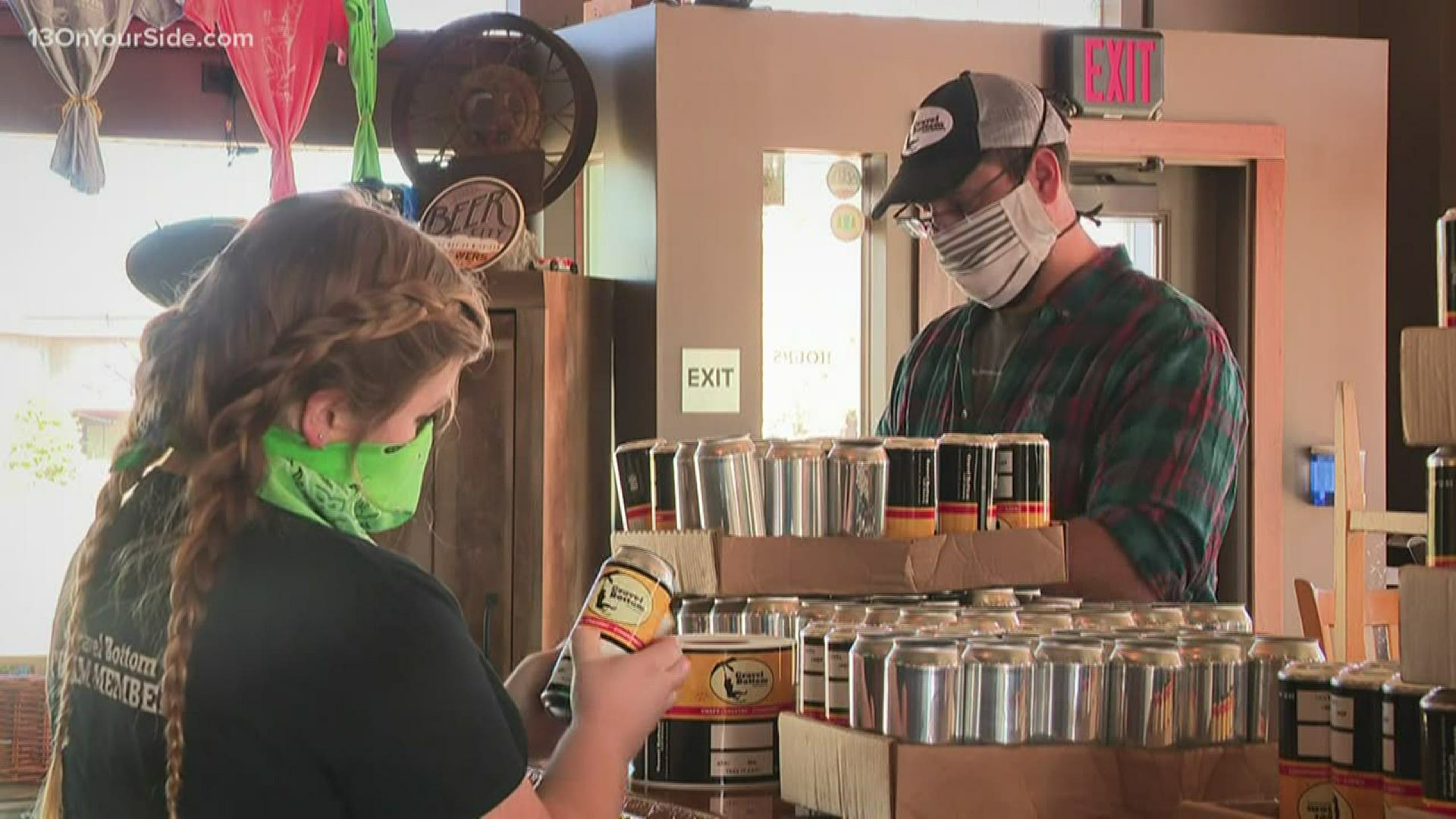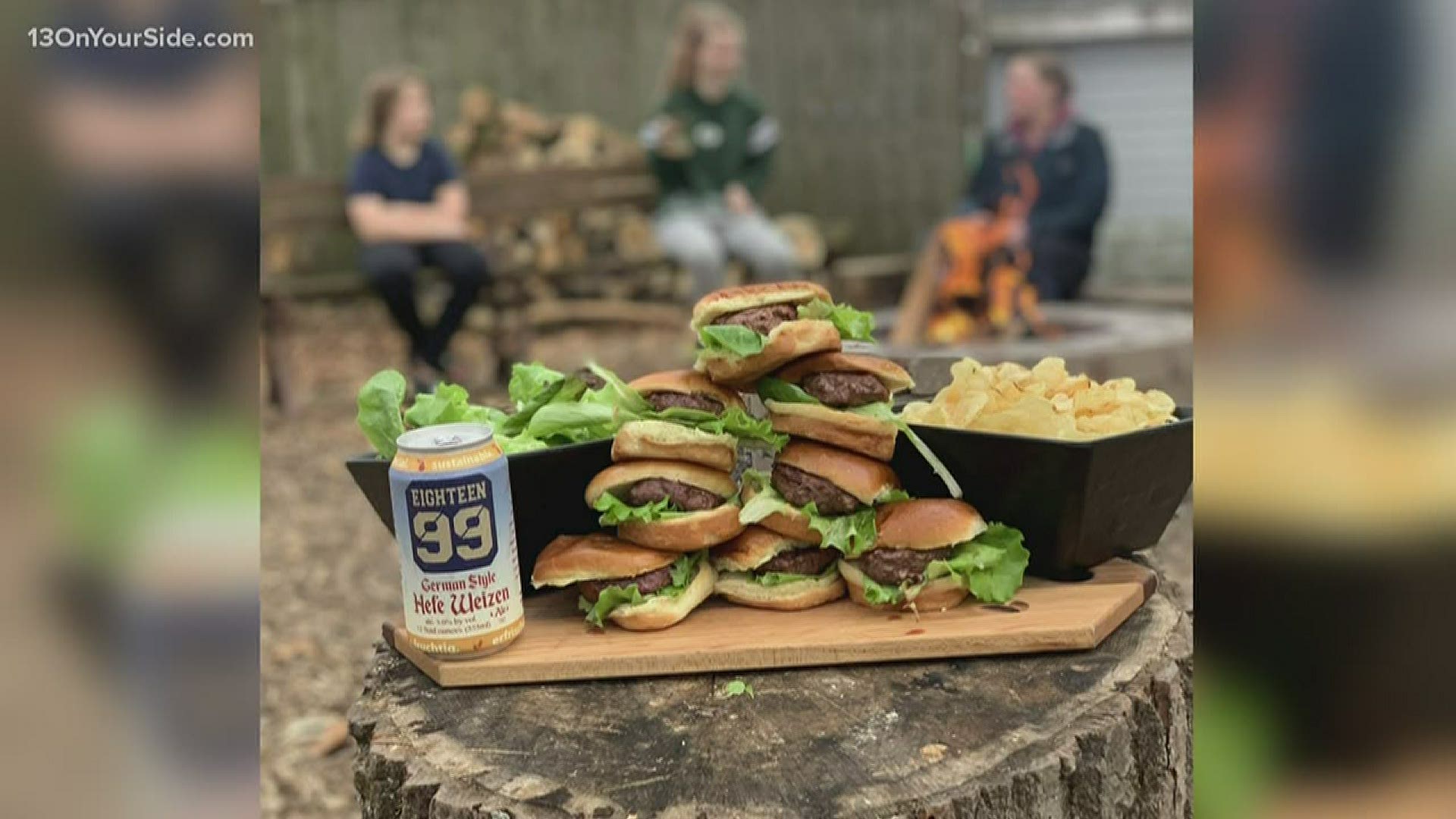GRAND RAPIDS, Mich — Grand Rapids has one of the highest densities of breweries, and it doesn't take long to learn people love their beer -- from small-scale, like Gravel Bottom, to some of the country’s biggest names, like Founders.
But in a pandemic that's shuttered restaurants and cancelled summer festivals, expired beer is getting dumped, and small businesses are struggling to stay afloat. In a town bathed in brews, this new crisis is testing the meaning of crafty.
Gravel Bottom Craft Brewery’s 2,500-square foot facility is right outside Grand Rapids in Ada. Before the coronavirus crisis the brewery depended solely on draft beer, sold primarily at its location, as well as festivals and a handful of bars and restaurants around town.
Now, owner Matthew Michiels said it’s having to cut two thirds of production, and adjust operations for takeout.
“We've kind of morphed our menu into things that are more amenable for takeout,” Michiels said.
In addition to the changes in its food operation, Gravel Bottom now individually seals the draft beer in cans for takeout.
“We bought one in January, thankfully, because it's been our lifeline,” Michiels said. “We've done over 6,000 cans, so far. We label every can by hand, basically put every sticker on every can. Our canner just cans one can at a time. Fill them, seam them, put them in the cooler and sell them the next day.”
At Founders there's a different problem, too much beer in the wrong place. CEO and co-founder Mike Stevens said it has about 20-thousand kegs sitting in bars and restaurants that have to be dumped.
“You’re talking about millions, 10s and 10s, hundreds of millions of dollars of inventory out in the trade right now, that will have to be emptied, depleted, thrown down the drain,” Stevens said. “We're included in that.”
The Brewers Association surveyed hundreds of breweries across the country about the impacts of coronavirus on business.
“The two biggest impacts were directly at the brewery, where we saw sales were down 65%, and that's even factoring in to go delivery,” said Bart Watson, chief economist at the Brewers Association. The second biggest impact was in draft distribution, with their partner bars and restaurants, and those sales were down 95%.”
Watson said since bars and restaurants are closed, people are buying more beer at the grocery stores. But since many small brewers don’t have much product on shelves, they aren’t seeing any benefit.
Founders though, sells 85% of its products in grocery and liquor stores, with only 15% in bars and restaurants.
“On a national level, we're one of the top leaders actually in our growth in the grocery chain," Stevens said.
But that still doesn’t nearly make up for the lack of sales in bars and restaurants.
At Gravel Bottom, sales are down 60%. Michiels, who has never laid anyone off, had to turn a staff of 17 into 2.
“We run it more like a family, than just a staff,” Michiels said. “So to go out there and tell everybody, we can't do it, in order to stay alive and be able to open up after this, we have to lay you guys off, is a very hard discussion.”
Michiels said he’s confident Gravel Bottom will make it, despite a tough road of rebuilding ahead.
Founders brewery closed its taprooms in Grand Rapids and Detroit. Then, after paying those employees in full for two months, furloughed more than 150 people.
“The hope is to then quickly try and start to bring people back,” Stevens said. “But, bringing people back into a consumer setting is really going to be up to the consumers. When will all of us feel comfortable going back to bars and restaurants? And we're anticipating that to be a slow transition.”
According to Watson, In general, the smaller the brewery, the more pain the pandemic is inflicting.
"Many small brewers, really are very small, locally focused,” Watson said. “They’re a brew pub, they’re a tap room, and so I think we're going to see fewer of them for the next few years.”
A lot of the creativity in the industry lies within the smaller brewers. Places like Gravel Bottom, which has 400 recipes of beer.
“Those small breweries that are 3 barrels, 7 barrels 10 barrels, are the ones that have the flexibility and can turn over really fast these really unique beers,” Michiels said. “So, if we lose a lot of those guys, we're gonna lose a lot of creativity in the industry for sure.”
But in Beer City USA, you can bet it will come back. According to the Brewers Association recovery could take 12 to 18 months.
“Craft brewing isn't going anywhere,” Watson said. “People like going to their local brewery and so we may see more pop up in their place.”
And there's something else people learn about Grand Rapids, if they stay long enough. They come for the beer, but they stay for the people.
“You really need that community behind you right now,” Michiels said. “In my opinion that's what's saving us.”
RELATED VIDEO:
MORE on 13 ON YOUR SIDE:
►Make it easy to keep up to date with more stories like this. Download the 13 ON YOUR SIDE app now.
Have a news tip? Email news@13onyourside.com, visit our Facebook page or Twitter. Subscribe to our YouTube channel.


